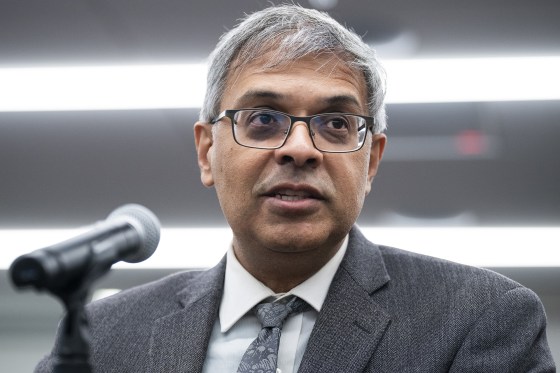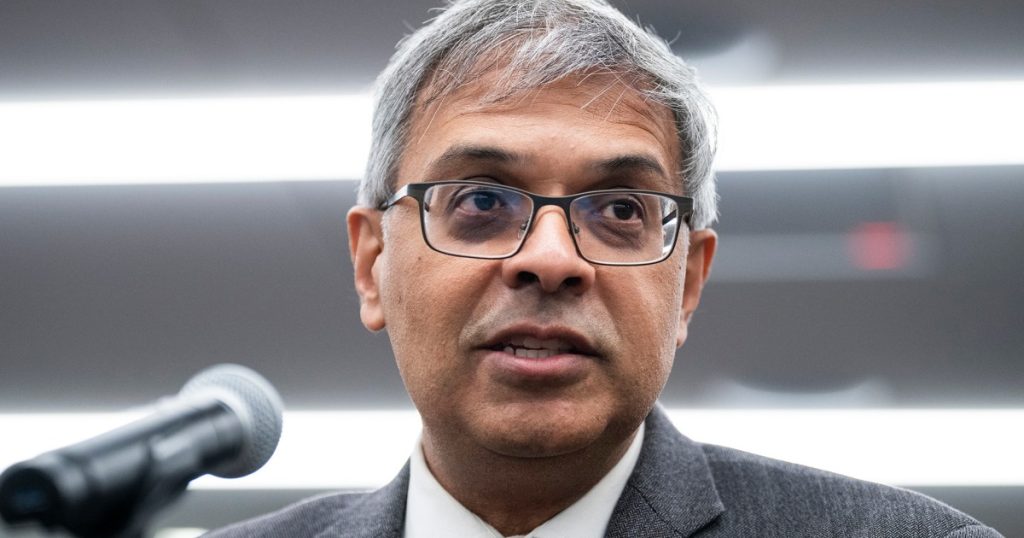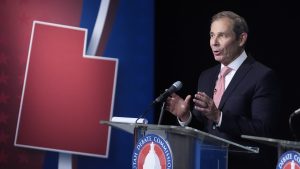Trump picks Jay Bhattacharya, a critic of Covid lockdowns, to lead National Institutes of Health

President-elect Donald Trump said he intends to nominate Dr. Jay Bhattacharya, a Stanford University professor known for his criticism of Covid lockdowns, to serve as the next director of the National Institutes of Health.
In a statement Tuesday, Trump said, “Dr. Bhattacharya will work in cooperation with Robert F. Kennedy Jr. to direct the Nation’s Medical Research, and to make important discoveries that will improve Health and save lives.”
Kennedy, Trump’s choice to lead the Department of Health and Human Services, is a vocal vaccine skeptic who has spread controversial and debunkedideas about health, including that HIV was not the sole cause of AIDS and that the coronavirus targeted certain racial groups.
He has claimed for years that vaccines can cause autism, a position based on decades-old research that has been discredited and retracted. According to the Centers for Disease Control and Prevention, “studies continue to show that vaccines are not associated with ASD [autism spectrum disorder].”
In a post on X after Trump’s statement, Bhattacharya wrote that he was “honored and humbled” to be nominated.
“We will reform American scientific institutions so that they are worthy of trust again and will deploy the fruits of excellent science to make America healthy again!” he added.
Separately, Trump also said Tuesday that he planned to nominate Jim O’Neill to serve as the deputy secretary of Health and Human Services under Kennedy. O’Neill, a critic of the Food and Drug Administration, held several HHS roles during the Bush administration.
Bhattacharya gained national attention in October 2020, when he co-wrote the “Great Barrington Declaration,” an open letter calling on public health officials to roll back Covid lockdowns.
He and his co-authors, Martin Kulldorff of Harvard and Sunetra Gupta of Oxford, argued that the lockdowns were “producing devastating effects on short and long-term public health” and called for an approach that would “allow those who are at minimal risk of death to live their lives normally to build up immunity to the virus through natural infection, while better protecting those who are at highest risk.”
The proposal, released before vaccines became available, advocated for a concept called “herd immunity,” which refers to a level at which a large enough share of a population has been exposed to an infectious disease that it is unlikely to keep spreading.
Many experts spoke up against the concept at the time. Several days after the Great Barrington Declaration came out, 80 researchers from the fields of public health, epidemiology and more published a joint letter in the medical journal The Lancet, calling the idea “a dangerous fallacy.”
Tedros Adhanom Ghebreyesus, the director general of the World Health Organization, called the proposal unethical.
“Allowing a dangerous virus that we don’t fully understand to run free is simply unethical,” Ghebreyesus said at the time, adding, “Never in the history of public health has herd immunity been used as a strategy for responding to an outbreak.”
During the pandemic, Bhattacharya was also publicly critical of the way the leaders of the NIH and Dr. Anthony Fauci, who led the National Institute of Allergy and Infectious Diseases until 2022, handled the U.S. response.
Source: https://www.nbcnews.com







More Stories
Adult ADHD prescriptions still on the rise, especially among older women
After IVF nightmares, patients have few protections
Michigan boy’s death raises concerns about unregulated hyperbaric oxygen therapy outside of health care facilities